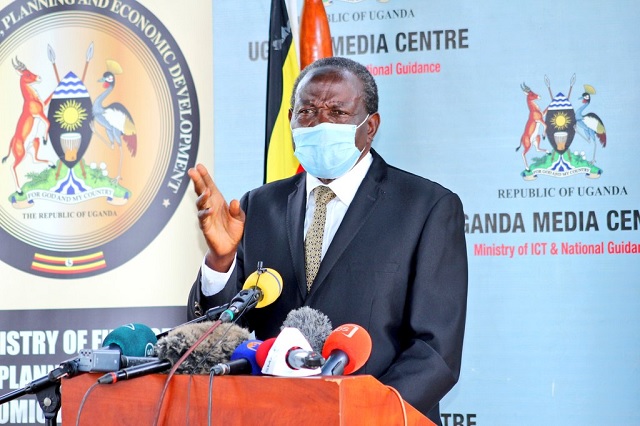
Kampala, Uganda | THE INDEPENDENT | Holders of bank or mobile money accounts whose cash balances may be transferred to the Bank of Uganda or to the Consolidated Account, are free to recover it according to the laws.
The National Payments Act, 2020 provides for the transfer of “idle money” or cash that remains on accounts declared “dormant”, to the Central Bank, after giving adequate notification to the account holders.
Following the publication in the media of thousands of accounts earlier this month, there has been a widespread debate on what the motive of the government is, with some claiming that it intends to confiscate the money and use it.
Others assert that the government is finding a way of taxing money that is held on bank and mobile accounts.
However, the Minister for Finance, Planning and Economic Development Matia Kasaija, says no such a thing can happen because it would be both illegal and counterproductive.
“Bank of Uganda will not take unclaimed balances lying idle on your accounts held either with Supervised Financial Institutions or Electronic Money Issuers,” he says.
Kasaija urged the public to disregard what he called rumours.
According to the BOU’s latest records, dormant bank accounts held about 900 billion shillings by 2018, having grown from 355 billion.
Electronic cash or mobile money accounts which have been declared dormant have 9.3 billion shillings. These are those that have had no activity for at least seven months.
According the Financial Institutions Act 2004 (Section 119), and Section 83 of the Microfinance Deposit-taking Institutions, an account is declared dormant if it has not had any activity in 2 years.
Fixed accounts are declared dormant if no activity has taken place two years after the date of maturity.
After that, the financial institution transfers the accounts to a separate register or dormant accounts in its books and the customer is informed through their last known address. After three years of no response, the account is published in the print media.
Five years after the advert is published, the cash may be transferred to the Bank of Uganda.
The customer or his legal representative has seven years to claim the money from BoU before it is transferred to the Consolidated fund, where the account holder may still claim it from.
Kasaija says for mobile money or electronic accounts, an account is declared dormant after seven months of inactivity, but that the accountholder has 8 years in which to claim the money, before it goes to the Consolidated fund.
Central Bank’s Michael Atingi-Ego says it would be imprudent for the government or central bank to take people’s money because then, it would make people rush to withdraw their money from banks. He explained that their mandate is to ensure price stability in the economy.
Ego explained that for the bank accounts, it has been the practice of the industry transferring the dormant accounts to the Bank of Uganda for close to 20 years now since the Financial Institutions Act and the Microfinance Deposit-taking Institutions Act underwent enforcement.
He says however, that no one has ever claimed that they have lost their money to the BoU or the government.
So why should a commercial bank or the banking industry as a whole be bothered if a customer leaves their money idle on an account for whatever duration?
Financial institutions are expected to always want to have as many accounts or as much cash with them as possible, for investment.
This therefore caused questions among sections of the public, and the reasoning that the government wants to take the money and use it.
Economist and University lecturer Dr Fred Muhumuza, says it is not only done in Uganda but several other countries, through the mode may defer.
Dr Muhumuza says it bothers the banks keeping accounts of people whose status is not known and that they would rather take the money back to the government’s custody as the guarantor of the citizens.
On why perhaps accounts become dormant, Muhumuza says some people die without revealing how many accounts they have, while others may leave the country and even others just abandon the accounts if they are no longer useful, and others lose means of maintaining an account.
Muhumuza says that in most cases, these accounts have very small balances on them, not enough to attract the owner to keep the account active.
But he says that even those who are still interested in their money can still claim it from the Consolidated fund.
In some jurisdictions, the money is put in a trust fund which may invest the funds. In Kenya for example, in the Unclaimed Assets Act 2011, the Unclaimed Financial Assets Authority is responsible for the management of the dormant accounts.
Under it, the Unclaimed Financial Assets Trust Fund is responsible for ensuring the profitability of the unclaimed assets, by investing while safeguarding it.
*****
URN
 The Independent Uganda: You get the Truth we Pay the Price
The Independent Uganda: You get the Truth we Pay the Price



